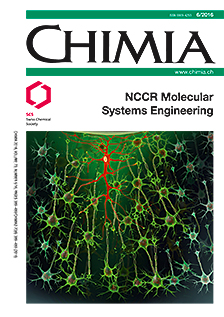Artificial Cell Research as a Field that Connects Chemical, Biological and Philosophical Questions
DOI:
https://doi.org/10.2533/chimia.2016.443Keywords:
Artificial cell research, Autopoiesis, Chemoton, Interdisciplinary research, PhilosophyAbstract
This review article discusses the interdisciplinary nature and implications of artificial cell research. It starts from two historical theories: Gánti's chemoton model and the autopoiesis theory by Maturana and Varela. They both explain the transition from chemical molecules to biological cells. These models exemplify two different ways in which disciplines of chemistry, biology and philosophy can profit from each other. In the chemoton model, conclusions from one disciplinary approach are relevant for the other disciplines. In contrast, the autopoiesis model itself (rather than its conclusions) is transferred from one discipline to the other. The article closes by underpinning the relevance of artificial cell research for philosophy with reference to the on-going philosophical debates on emergence, biological functions and biocentrism.Downloads
Published
2016-06-29
Issue
Section
Scientific Articles
License
Copyright (c) 2016 Swiss Chemical Society

This work is licensed under a Creative Commons Attribution-NonCommercial 4.0 International License.
How to Cite
[1]
A. Deplazes-Zemp, Chimia 2016, 70, 443, DOI: 10.2533/chimia.2016.443.







